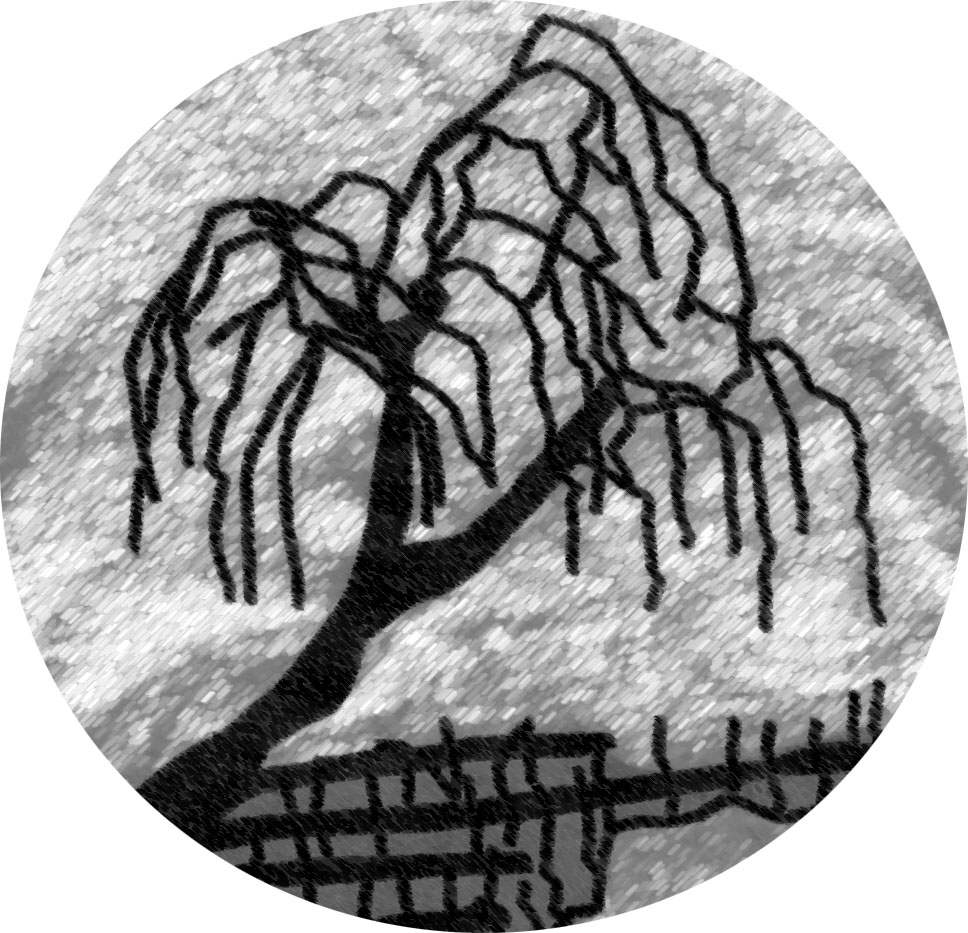Training
At Yoshin Jitsu Kai we emphasise the development of the internal strength and awareness, physical skills and mental abilities required to accomplish the traditional healing and fighting jujitsu arts of Danzan Ryu Jujitsu. Our training is directed towards long term proficiency in jujitsu, progress towards immediate self defense needs and a deep understanding of the fundamental principles underlying the arts. Our goal is to guide students to obtain full mastery of traditional jujitsu skills.
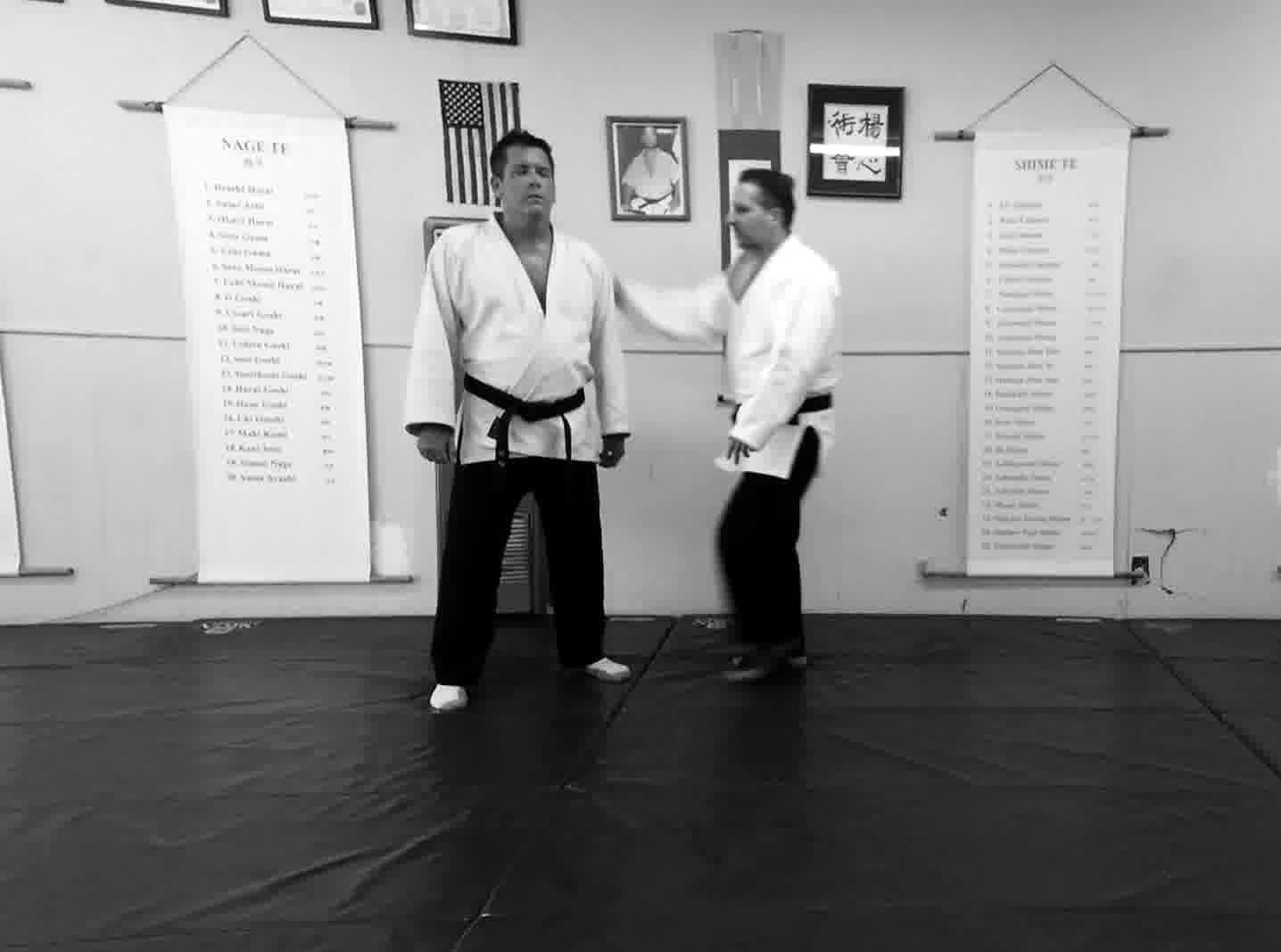
Jujitsu classes are regularly held on Tuesday and Thursday from 6:00 to 8:00 PM. The Dojo will be open at 5:45 PM for changing. Beginning students, after sufficient training, will be invited to attend classes on Wednesday and Saturday, when available. Classes are small and students are taught individually or in small groups by black belt instructors. Blackbelt class is on the third Sunday of each month from 9:30 to 12:00 PM. Ikkyus are welcome. Special classes and clinics are scheduled at other times.
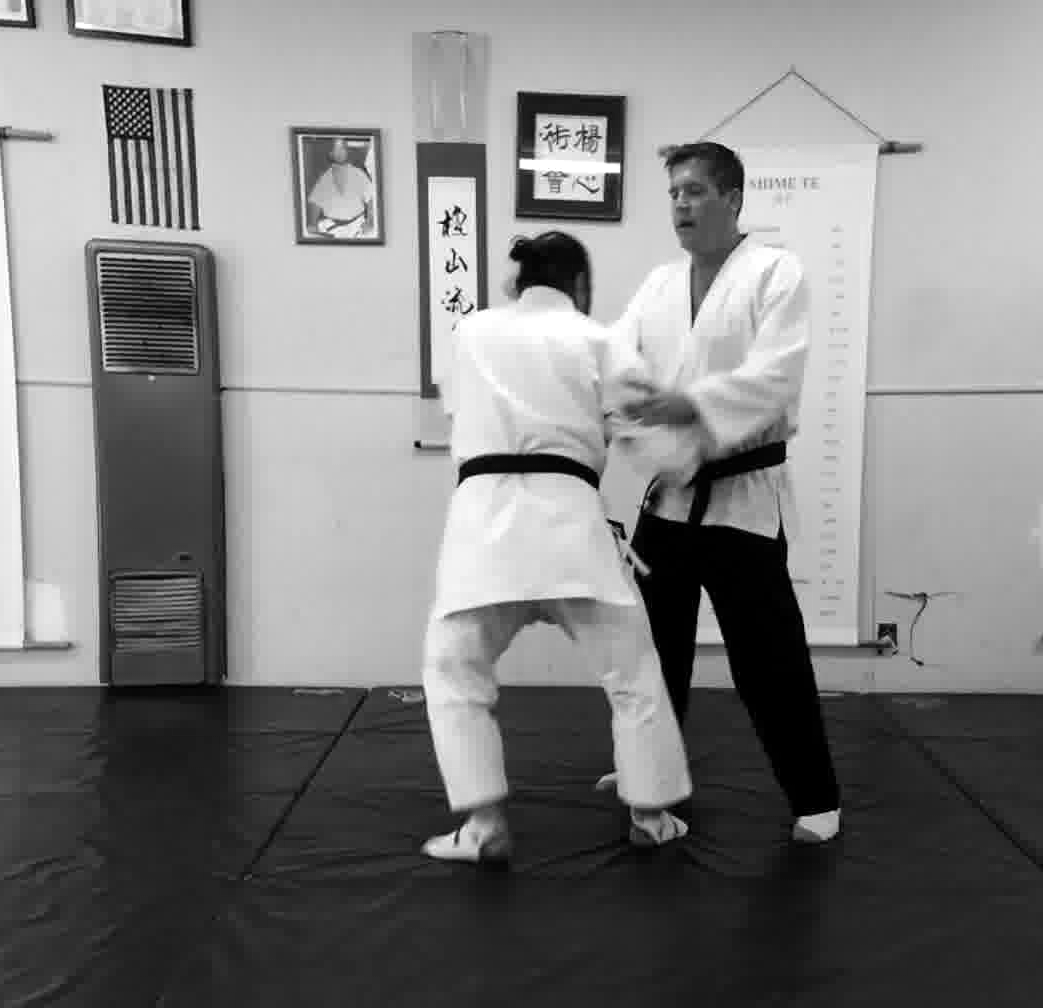
Class is generally organized into three sections over the two hour duration. (1) Class begins with stretching, standing, and breathing exercise. This is followed by practicing rolls and falls. (2) Thereafter, a series of drills are practiced, which focuses on the development of fundamental skills germane to jujitsu. (3) Teaching of Danzan Ryu kata and the practice of waza.
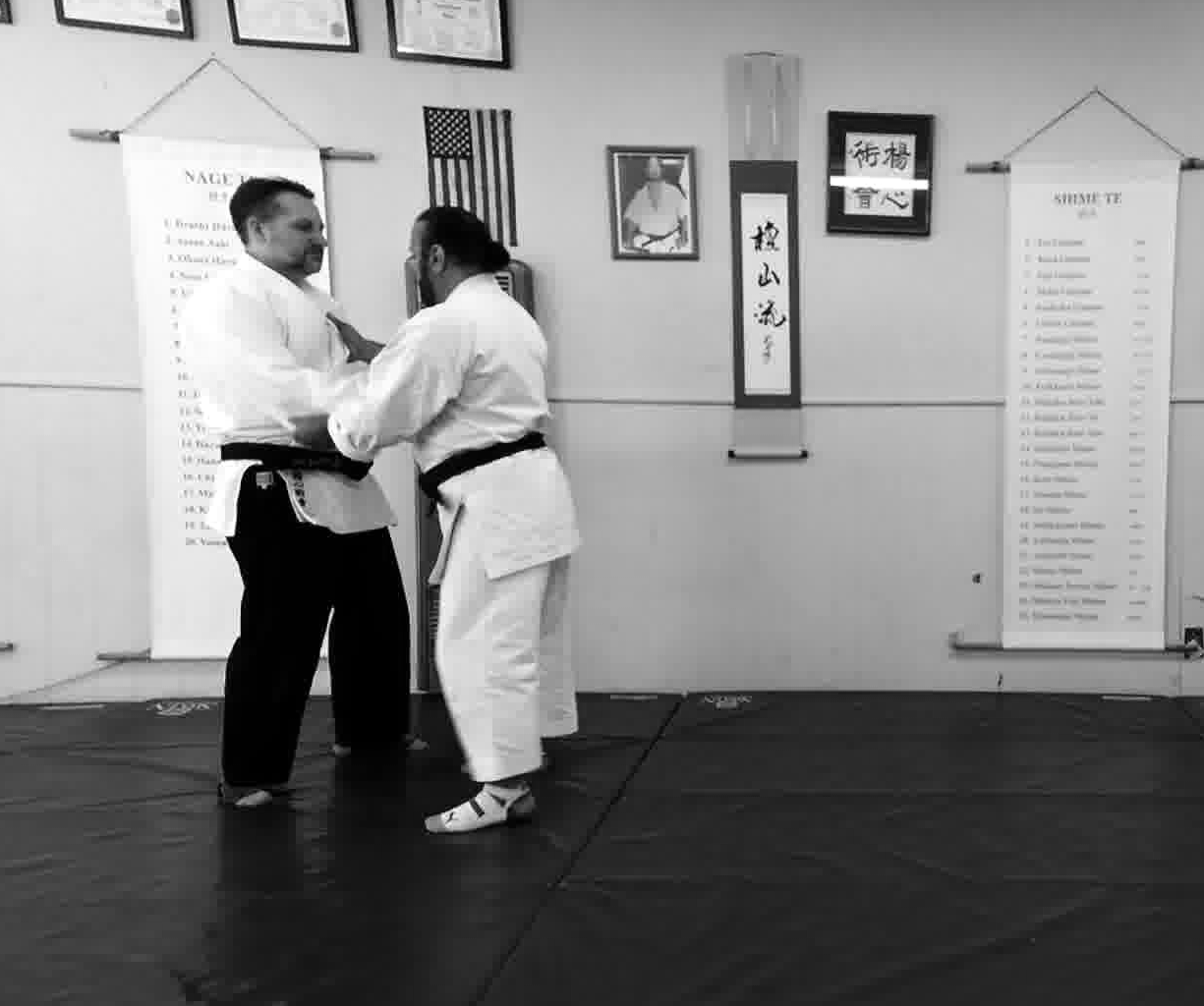
With regard to the core curriculum, new students begin by learning the techniques in Yarawa (basic holds and escapes) and methods for safely falling. After which, students are taught the throwing techniques (Nage Te) followed by chokes, locks, and ground technquies (Shime Te and Goshin Jitsu). Students are taught the basics of balance, leverage, and inertia. Advanced students begin learning the Chuden. Promotion to higher rank is obtained solely through demonstration of physical accomplishment and maturity in the arts. Training at Yoshin Jitsu Kai has a strong emphasis on safety.
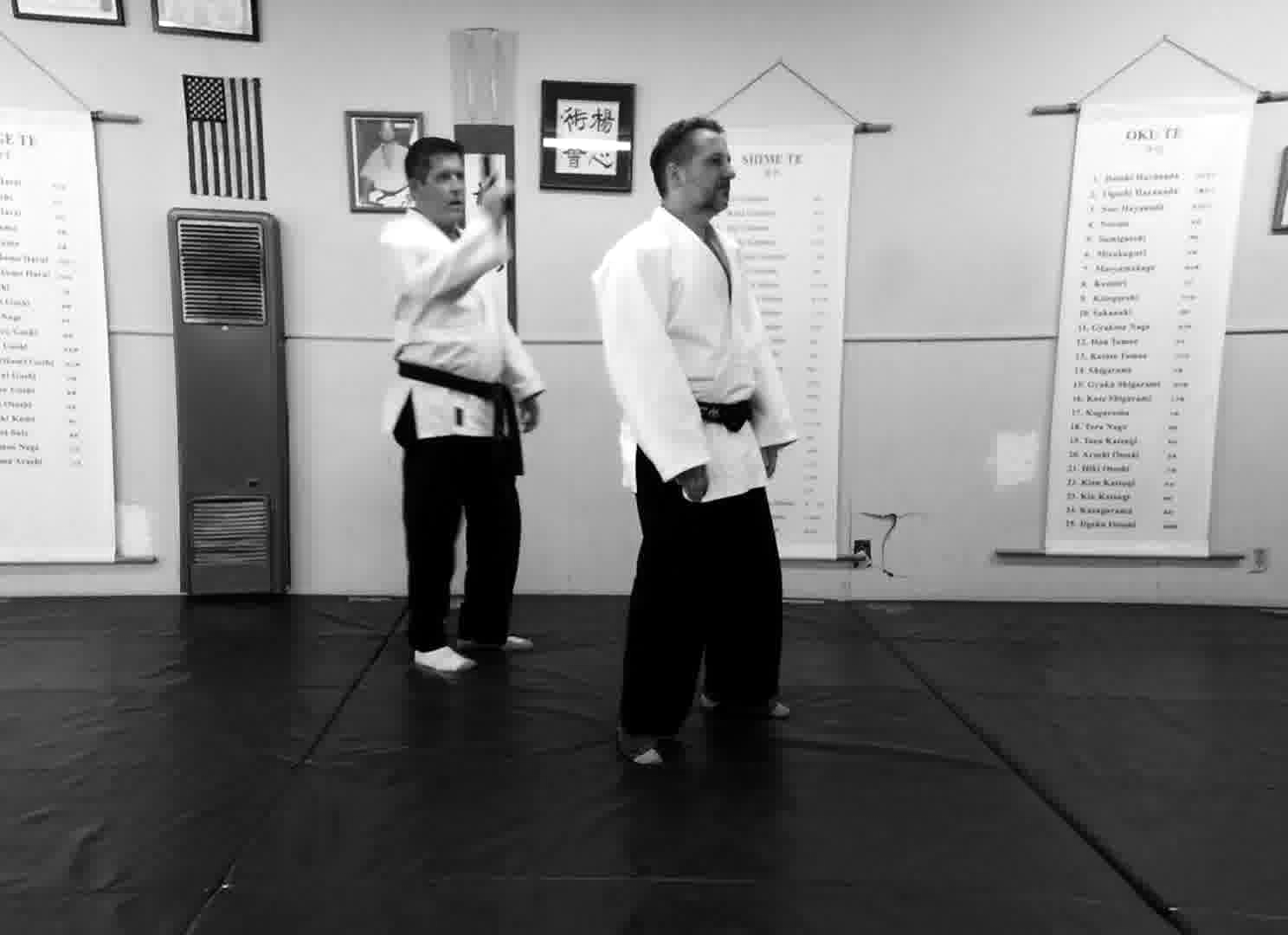
The Esoteric Teachings of Professor Henry S. Okazaki
Intrepeted by Prof. William Morris from the Tora No Maki
Since the fundamental principle acquired through the practice of Jujitsu has been elevated to a finer moral concept called Judo, “The Way of Gentleness,” it may well be said that the primary objective of practicing Judo is perfection of character. And to perfect one’s character one must be grateful for the abundant blessings of Heaven, Earth, and Nature, as well as for the great love of parents; one must realize his enormous debt to teachers and be ever mindful of his obligations to the general public.
As a member of a family, one’s first duty is to be filial to parents, to be helpful and harmonious with one’s wife or husband, and to be affectionate to brothers and sisters, so that the family may be a sound, successful, and harmonious unit of the community.
As a member of a nation one must be grateful for the protection which one derives as a citizen; one must guard against self-interest and foster a spirit of social service. One must be discreet in action, yet hold courage in high regard, and strive to cultivate manliness. One must be gentle, modest, polite, and resourceful; never eccentric, but striving always to practice moderation in all things. One must realize that these qualities constitute the secret of the practice of Judo.
Anyone who practices Judo should neither be afraid of the strong nor despise the weak; nor should he act contrary to the strength of his enemy because of the art he has acquired. For example, when a boat is set afloat on water, one man’s strength is sufficient to move the boat back and forth. This is only possible because the boat floats; for if, on the other hand, the boat is placed on dry land, the same man’s strength is scarcely sufficient to move it. It is necessary, therefore, that the weak should learn this fact with regard to the strong.
The forms and techniques should be remembered as the basic art of Judo. One should never use these arts against anyone without sufficient justification. Therefore, refrain from arrogance and do not despise a small enemy or a weak opponent. Every student of Judo should realize that honesty is the foundation of all virtues. Kindness is the secret of business prosperity. Amiability is the essence of success. Working pleasantly is the mother of health. Strenuous effort and diligence conquer adverse circumstances. Simplicity, fortitude, and manliness are the keys to joy and gladness; and service to humanity is the fountain of mutual existence and common prosperity.
As aptly expressed in the poem “The boughs that bear most hang lowest,” one should never forget the virtue of modesty as one attains proficiency in the art of Judo. Do not disdain or regard lightly either literary or military art; each is important and deserves equal cultivation and respect. Within constant motion and change there is tranquillity; and within tranquillity, there is motion and change.
Remember always parental love and one’s enormous indebtedness to teachers. Be grateful for the protection of Heaven and Earth. Be a good leader to younger men. To lead younger men well, will in the long run, mean to attain proficiency in the skill of Judo.
Like a drawing in India ink of the whispering of wind in the pines, the secrets of Judo can only be suggested. Only through personal experience can one comprehend the mystic ecstasy of such secrets. It is said of Jujitsu that it would require ten years of practice to win victory over one’s self and twenty years to win victory over others.
Whatever the trials or dangers, even “Hell under the upraised sword,” remain calm and remember the doctrine imparted to you by your teacher.
A noted verse reads: “For the lotus flower to fall is to rise to the surface.”
Only by cultivating a receptive state of mind, without preconceived ideas or thoughts, can one master the secret art of reacting spontaneously and naturally without hesitation and without purposeless resistance.
These are the secrets of Kodenkan into which I have had the honor to initiate you.

Henry Seishiro Okazaki
Master (Danzan Ryu)
Director of the Kodenkan (Dojo)
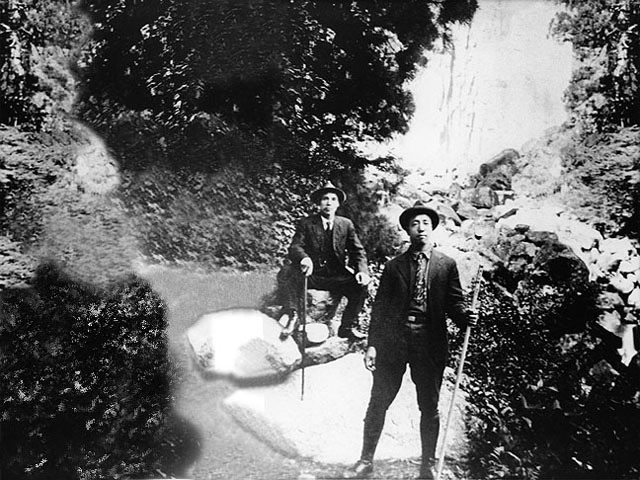
Books recommended for martial arts students
The Art of War, Sun Tsu
Classic book on strategy of conflict. The book was written in ancient China to advise generals but the advice is current for individuals today.
A Book of Five Rings, Musashi
Famous book on sword strategy by the most famous Japanese swordsman.
The Unfettered Mind, Takuan Soho
This book is written by the Zen monk who was Musashi's adviser. It is an exceptionally clear description of the state of mind necessary for effective practice of martial arts.
On Killing, Lt. Col. Dave Grossman
This is an enlightening description of aggression in human psychology and military training strategies.
On Combat, Lt. Col. Dave Grossmano
More description of human reactions under stress and the techniques of training for that event.
The Zen Way to the Martial Arts, Taisen Deshmaru
Good description of the state of mind necessary for the practice of martial arts.
Strong on Defense, S. Strong
A very clear book on basic self defense strategy. Good for readers with no martial arts experience.
Comprehensive Asian Fighting Arts, Donn Draeger and Robert Smith
Classical Budo, Donn Draeger
Classical Bujitsu, Donn Draeger
Modern Budo and Bujitsu, Donn Draeger
These books give a good, general description of the history and practice of all Asian fighting technique.
Deadly Karate Blows, Brian Adams
Description of the physiology of various strikes.
The Fighting Spirit of Japan, E. J. Harrison
An early survey of Japanese martial arts traditions
The Sword and the Mind, Yagyu Munenori (translated by Hiroaki Sato)
Sword manuals of three generations of family masters who were contemporaries of Musashi
Kodokan Judo, Kano
THE text on judo technique.
Zen in the Art of Archery, Eugen Herrigel
Description of a European's study of archery
The Sword and the Brush, Lowry
Very nice description of the meaning of common martial arts terms.
The Way and the Power, Lovret
Zen and the Way, Trevor Legget
